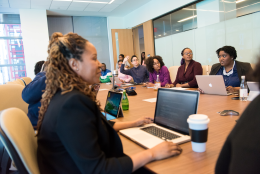Introduction
HR managers in Nigeria face challenging situations when deciding whether to hire younger or older, more experienced candidates to fill critical positions in their organizations. As businesses grow and the culture of work changes, this critical dilemma forces HR experts to attempt to prioritize one age gap over another in an attempt to balance organizational expectations as strategic partners.
In this post, we will explore strategies and standard practices that Nigerian HR managers employ to address this problem, highlighting the advantages and drawbacks of each strategy and recommending solutions that will address different types of organizations trying to solve this problem, including SMEs, who are the most affected. HR experts and specialists must realize that the goal is congruency and harmony with the organization’s business goals.
Table of Contents
Background
As strategic business partners for organizations, HR and hiring managers cannot operate in silos; the organization’s business goals must inform their recruitment decisions. Therefore, hiring younger people or older, more experienced ones must not be a matter of semantics; it must be a decision that aligns with the strategic direction, focus, and business emphasis of their organizations.
So, should HR managers hire younger or older, more experienced candidates when building their teams? Before answering this question, let us look at the benefits of each age band:
Benefits of Hiring Younger Candidates

- Opportunity to Build Organizational Culture and Work Ethics: Building an ideal corporate culture and ethics is by far the strongest advantage of any organization. A great organizational culture that is well entrenched among employees ensures sustained success and growth. Various organizations in Nigeria, like Gtbank, Access Holdings, First Bank of Nigeria, Dangote Group, and Unilever Nigeria Pls., have practiced this strategy through their yearly graduate trainee programs.
It is a lot easier to build and firm up an ideal organizational culture and work ethics in youth candidates and expect to see targeted results in a few years.
- Fresh perspectives and innovative ideas: Young employees are likely to challenge themselves and bring fresh perspectives and innovative ideas to their work. This is because they are likely to attempt to try out some ideas even when they do not fully grasp the risks of such trials. This innovative energy is what gives birth to new ideas and, sometimes, new products
- Cost-effectiveness and cost considerations in terms of salary expectations: Hiring younger candidates might be more cost-effective initially due to lower salary expectations, while older candidates may demand higher compensation based on their experience.
- Potential for long-term growth and development within the company: If well taken care of and communicated with, young employees are more likely to stay longer with employers. Though the risk of mobility exists, this most often happens after an average of 5 years in the case of Nigeria.
- Adaptability to changing technologies and environments: Younger candidates may be more adaptable to change and technological advancements. For example, most young employees pioneered and still prefer the Bring-Your-Own-Device (BYOD) concept in most organizations. BYOD is a concept where employees are allowed to bring their devices, like phones and laptops, and use them for work. This helps employers cut costs associated with acquiring certain classes, quantities, and qualities of assets, especially technology assets. Older candidates might require more training and support to adapt to new systems or processes.
- Organizational Culture Fit: Younger candidates may align better with the company’s culture and values, especially if the organization has a youthful and innovative environment, whereas older candidates may struggle to integrate if there’s a significant generational gap.
Benefits of Hiring Older, More Experienced Candidates

- The Power of Experience: Seasoned employees bring a wealth of knowledge that only years in the industry can provide. Their insights and nuanced problem-solving skills can save a company from making costly mistakes. Furthermore, they often act as mentors, nurturing younger talent and fostering a collaborative environment that boosts productivity.
- Established Networks: Older candidates often come with extensive professional networks that can benefit the organization through potential partnerships, business opportunities, or recruitment referrals.
- Crisis Management: Older, more experienced candidates are typically better equipped to handle crises and navigate challenging situations due to their seasoned judgment and problem-solving skills.
- Industry Reputation: Hiring seasoned professionals can enhance the organization’s reputation within the industry, as their track record and credibility can lend credibility to the company.
- Reduced Training Needs: Older candidates may require minimal training compared to younger hires, as they often bring a wealth of knowledge and skills acquired through years of experience.
- Leadership Potential: Older, more experienced candidates may bring strong leadership skills and mentorship abilities, whereas younger candidates may have untapped potential that can be groomed for leadership roles in the future.
- Stability and reduced turnover are due to established careers and a lower likelihood of job-hopping.
Challenges of Hiring Younger Candidates:
- Limited Experience and Skill Gap: Younger candidates lack the depth of experience needed to handle complex or high-pressure situations. This hampers their performance abilities in certain roles and increases error rates, especially with time-sensitive tasks.
- Retention Risk: Younger candidates are often more inclined to seek new opportunities or career advancements at shorter time frames, leading to higher turnover rates and increased recruitment costs for the organization.
- Maturity and Professionalism: Some younger candidates may struggle with demonstrating the maturity and professionalism expected in certain workplaces, which could pose challenges in client-facing roles or high-stakes environments.
- Overreliance on Technology: While younger candidates may be tech-savvy, they might rely too heavily on technology, potentially overlooking the importance of interpersonal skills and face-to-face communication.
- Perception from Stakeholders: Hiring predominantly younger candidates may raise concerns among stakeholders, such as clients or investors, regarding the depth of experience and reliability within the organization.
- Risk of Burnout: Younger candidates may be more prone to burnout due to their eagerness to prove themselves, leading to potential issues with work-life balance, whereas older candidates may bring a more balanced perspective and approach to workload management.
- Innovation vs. Experience: Younger candidates may bring fresh ideas and innovative thinking to the table, while older candidates may offer a wealth of experience and industry knowledge that can be invaluable in decision-making processes.
- Team Dynamics: Introducing a younger candidate into a team of older, more experienced employees may disrupt team dynamics and potentially lead to conflicts or resistance to change.
Challenges of Hiring Older, More Experienced Candidates

- Resistance to Change: Older candidates may be more resistant to adopting new technologies or methodologies, preferring traditional approaches that they are familiar with, which could hinder innovation and organizational agility.
- Higher Salary Expectations: Older, more experienced candidates typically command higher salaries or compensation packages due to their extensive experience and expertise, which can strain the organization’s budget.
- Limited Longevity: Older candidates may have a shorter timeframe for employment before retirement, leading to concerns about succession planning and the potential for shorter-term contributions to the organization.
- Health and Wellness Concerns: Older employees may be more susceptible to health issues or physical limitations, leading to potential absences or accommodations that the organization needs to consider.
- Potential for Overqualification: More experienced candidates may be overqualified for the position, leading to concerns about job satisfaction, engagement, and retention, as they may seek more challenging roles or opportunities for growth elsewhere.
- Generational Differences: Introducing older employees into a predominantly younger workforce may create generational gaps in communication styles, work preferences, and approaches to problem-solving, which could impact team cohesion and collaboration.
- Adaptability to Change: Older employees may struggle to adapt to rapid changes in the industry or workplace dynamics, requiring additional support and training to stay relevant and effective in their roles.
- Perception from Younger Employees: Younger employees may perceive older hires as less dynamic or innovative, potentially leading to tensions or conflicts within the team dynamics if not managed effectively.
- Tech Literacy Gap: Older employees may have limited familiarity with newer technologies or digital tools, requiring additional training and support to bridge the gap and maximize productivity in a technology-driven workplace.
- Risk of Burnout: Older employees may be at a higher risk of burnout due to the pressure to maintain high-performance levels and meet expectations based on their experience, potentially leading to health issues or decreased job satisfaction.
Finding the Balance

In our several years of experience as business and management consultants, HR managers and entrepreneurs must strike a balance between hiring experience and innovation, or hiring younger or older, more experienced candidates. That answer lies in finding and aligning with:
- The current strategic goal or emphasis of the organization
- Availability of resources, both human and material
Conclusion
HR managers must carefully weigh these challenges and benefits in order to make informed decisions that align with the organization’s goals, culture, and strategic objectives. Fostering diversity and inclusivity in age demographics can enrich the workplace environment and contribute to a well-rounded team dynamic.
While building their teams, integrating seasoned employees with younger staff can lead to an optimal blend of fresh perspectives and seasoned wisdom, which can be a recipe for success. Incorporating older employees can also pose challenges. Adapting to rapid technological changes might require additional training, particularly in a world where digital fluency is vital. Overcoming generational gaps and fostering seamless teamwork can also be demanding.
Frequently Asked Questions
Sample Questions that May Guide Decision-Making
To address the above issue, HR experts must ask questions like: What is the strategic focus of the business at this time? Is the organization looking to be more IT-driven, or is it trying to manage costs by reducing mistakes and error rates? Is the organization looking to expand into new markets using technology, or are we looking to firm up and deepen control of existing markets for a larger market share? These and other similar probing questions will help HR specialists resource their organizations with candidates that will fit perfectly into the goals of the company.
Recommendations
Addressing these challenges requires proactive strategies such as targeted training and development programs, fostering an inclusive work culture that values diverse perspectives, and providing mentorship opportunities to facilitate knowledge transfer between generations.



